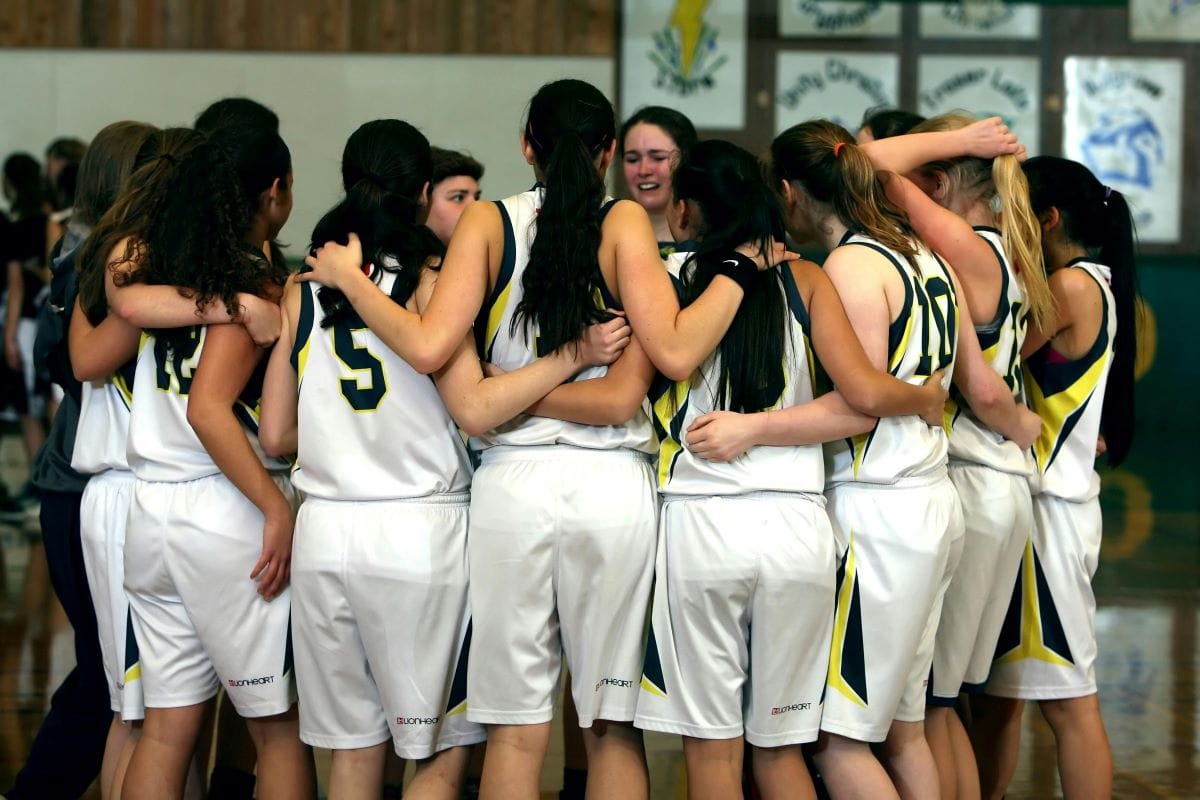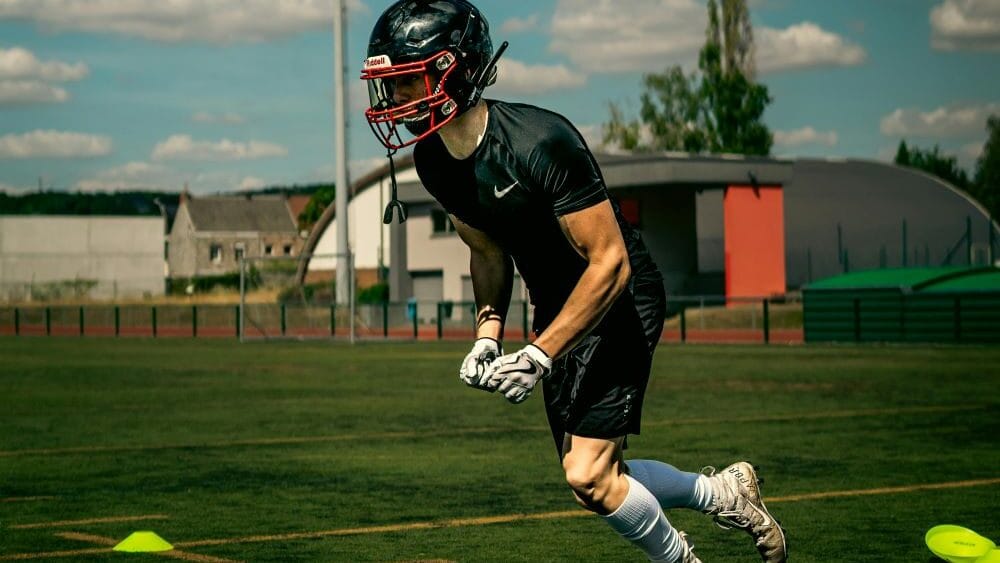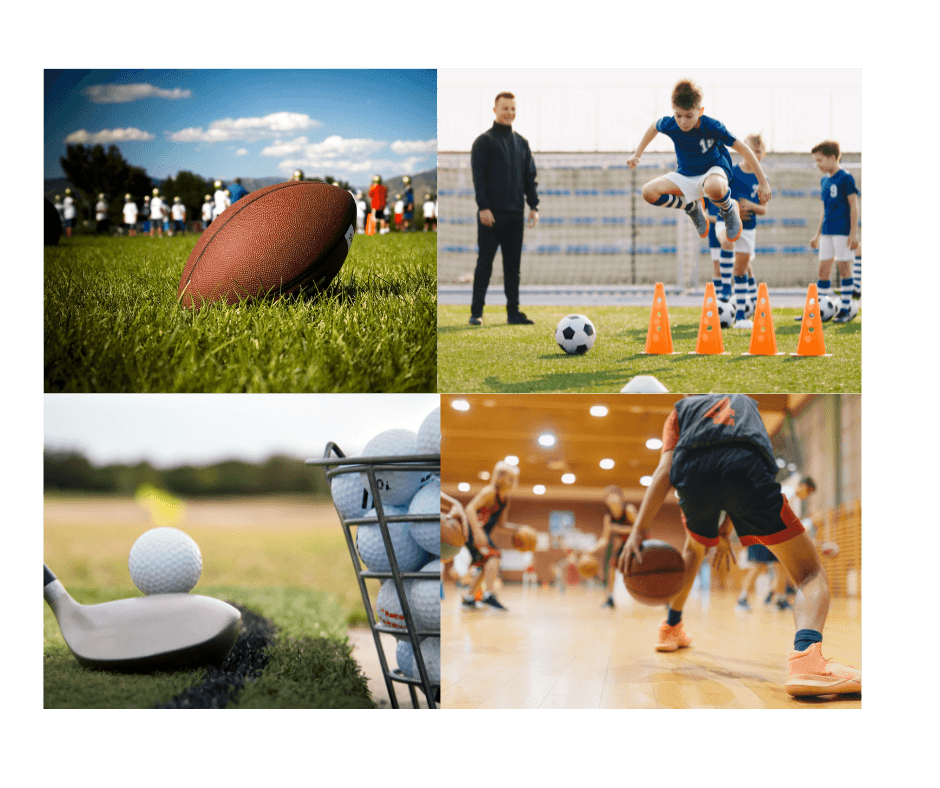If you are looking for a high school senior prep guide, we’ve got you covered.Junior year is in the books, and there’s one more high school season left. One more opportunity to prove who you are—not just as a player, but as a person. As a rising senior, you’re probably feeling a mix of pressure and excitement. That’s normal. This season could be your last chance to seize what’s in front of you.
Will you take advantage of the opportunity—or let it pass you by? Will you walk away from high school sports with regret, or fulfilled knowing you gave it your all?
This is the time to be intentional. If you have dreams of playing beyond high school or you just want to make the most of your final season, the preparation starts now. Physical training matters, but mental preparation may be even more important. Together, those two elements won’t just change your game—they’ll open doors for your future.
If you do have a dream of playing beyond high school, it’s not too late to connect with coaches, but don’t waste time. Be proactive. Be focused. Be ready.

I. High School Senior Prep requires a Mindset Shift:
A. Step Into Leadership
As a rising senior, you’re no longer just part of the team—you’re a leader. Whether it’s by example or by voice, your presence matters. Take ownership of your effort, your energy, and your impact on those around you. Set the tone in practice, in the weight room, and in the locker room. Create a culture you’ll be proud to leave behind.
B. Balance Urgency with Joy
Yes, there’s pressure. It’s your final year. But don’t let that steal the joy from the game you love. This is your senior season—make it count. Compete like every play is your last, because one of them may be your last. Embrace every win, every loss, every practice. Soak it all in. You’re a senior—enjoy the ride.
C. Train Your Mind
Summer is full of distractions. Stay locked in. Set clear goals and write them down. Journal your progress. Visualize who you want to be and where you want to go. Get your mind right before the season even starts.
Need help with this part of your training? Check out our Goal Setting Worksheet to keep your focus where it needs to be.
II. Physical Prep: What Your Body Needs This Summer

A. Strength & Conditioning
High school senior prep begins in the weight room—this is where champions are built. Strength, speed, explosiveness, and mobility should all be part of your plan. Don’t forget injury prevention—train smart so you can stay on the field.
Two training schedule options:
- 4 workouts/week: Combine strength and speed
- 5 workouts/week: 3 strength days + 2 speed-focused days
You can find sample speed workouts here.
B. Skill-Specific Work
Train for your position. Prioritize game-speed reps that translate on the field or court. Perfect your strengths and drill your weaknesses. Build your athletic and mental skills that will help you become a complete player. Also, don’t underestimate the value of being a great teammate and competitor—that’s something every coach notices.
C. Rest & Nutrition
You can’t outwork poor recovery. Drink plenty of water and fuel your body with protein-rich meals, complex carbs, and a colorful variety of fruits and vegetables. A well-balanced diet supports both performance and recovery.
And don’t skip sleep. Your body needs time to repair and grow. If you’re putting in work, recovery is part of the plan. Skimp on rest, and you’ll feel it—physically and mentally.
III. High School Senior Prep Recruiting Roadmap: June–March
A. Key Recruiting Dates
Stay aware of these important dates (specific to most sports—always confirm for your sport):
- June 15 – For most sports, coaches may begin private contact (calls, emails, texts) with prospects that have completed their sophomore year. For Women’s Softball and Men’s and Women’s Lacrosse, that date is September 1 following their sophomore year. Note: student athletes can initiate contact at any time, this date applies to coaches initiating contact with student athletes.
- Sport Specific – Specific recruiting dates will vary by sport and division (D1, DII, DIII, etc.) Refer to NCAA Recruiting Page to find information specific to your sport.
- Dead & Quiet Periods – Refer to NCAA sport-by-sport calendars; digital contact is still permitted during dead periods.
B. Highlight Film Best Practices
Keep it short and sharp—3 to 5 minutes of real game footage. No fluff. Show decision-making, athleticism, and skills across all levels of your position. For example, basketball players should include scoring from all 3 levels, playmaking, defense, and hustle plays. Highlight your strengths but make sure you demonstrate your overall game. Upload your film to platforms like Hudl, YouTube, or TeamSnap, and share links with coaches directly. Personally, YouTube is my favorite platform due to its overall accessibility.
C. How to Communicate with Coaches
Your first email should include:
- Your name, position, school, and graduation year
- Athletic stats and academic achievements (GPA, test scores)
- Why you’re interested in their school (both academically and athletically)
- A link to your highlight film and a copy of your résumé
- Contact info for your high school or club coach (after confirming it’s okay with them)
Keep track of who you’ve contacted. Research which coach handles recruiting at each school—often it’s not the head coach. Follow up if they respond or if you have new updates, but avoid overloading their inbox.
D. Real Talk: Levels & Fit
There’s no one-size-fits-all answer to college athletics. Learn the differences between NCAA D1, D2, D3, NAIA, and JUCO programs. Find schools that match your skill level and offer academic programs that interest you.
Be honest with yourself about your fit, but don’t be afraid to aim high. Take your shot. You only get one chance to chase this. Just make sure to give yourself opportunities at the level that you best fit as well.
IV. Leadership Beyond the Stat Sheet
Your athletic ability will get attention—but your character will make the biggest impression.
- Be the kind of leader others choose to follow.
- Mentor a younger athlete. Teach them what “Beyond the Play” really means.
- Get involved in your community. Give back.
- Be consistent in who you are, on and off the field.
College coaches recruit more than athletes—they recruit people. As part of your high school senior prep work, make sure you show them you’re someone who leads with integrity and purpose.
Conclusion
Your senior year isn’t just your final season—it’s your launch pad.
Show up prepared. Lead with purpose. Compete with heart. Whether your journey continues into college athletics or not, make this year the one you’ll always be proud of.
This is your year. Make it what you want it to be.
BtL
✅ Get powerful tips, training content, and mindset fuel—straight to your inbox. Subscribe Here
📱Follow us for daily inspiration, behind-the-scenes content, and athlete spotlights: Facebook, Twitter, Instagram, TikTok
💡 Want to know what drives us? Discover the Ball to Life mission
